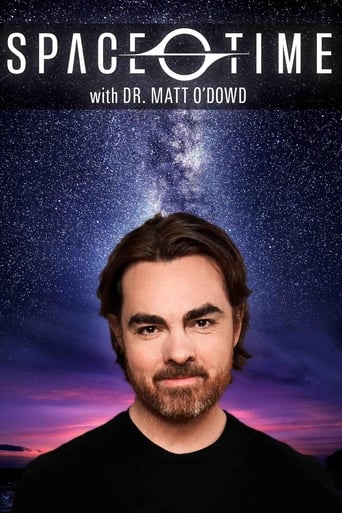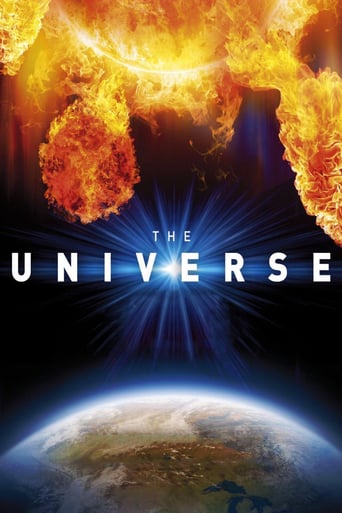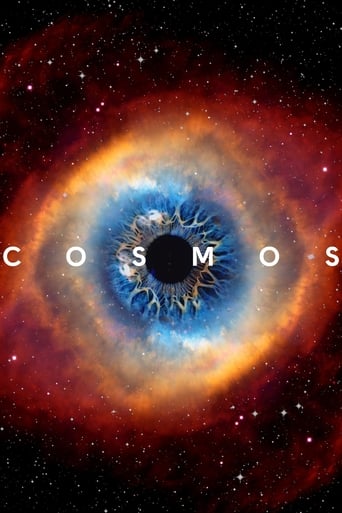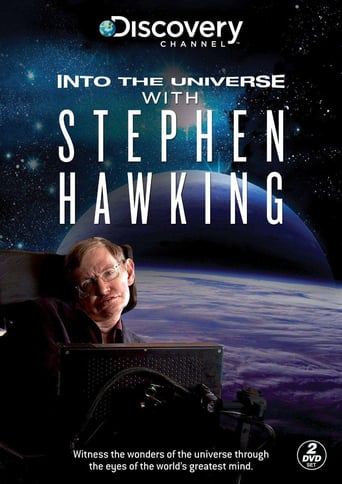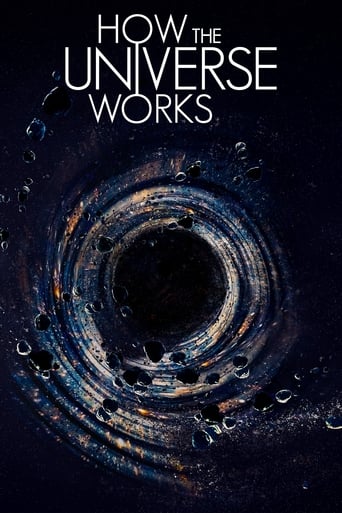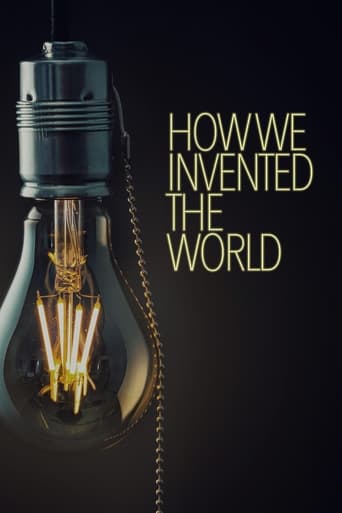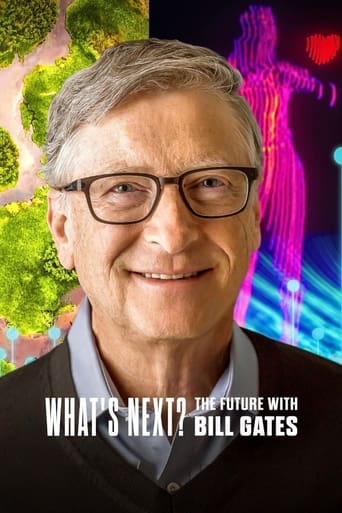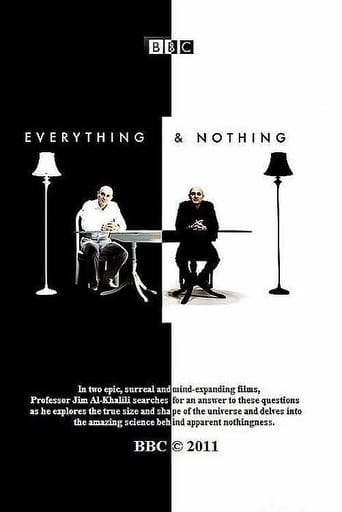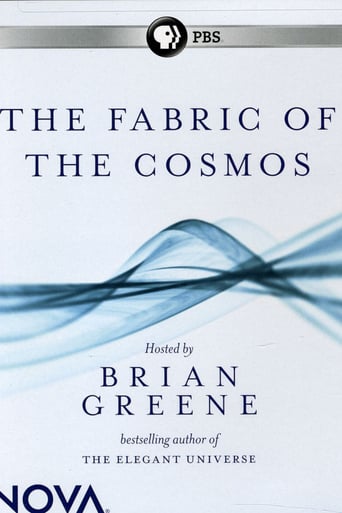PBS Space Time Season 2020
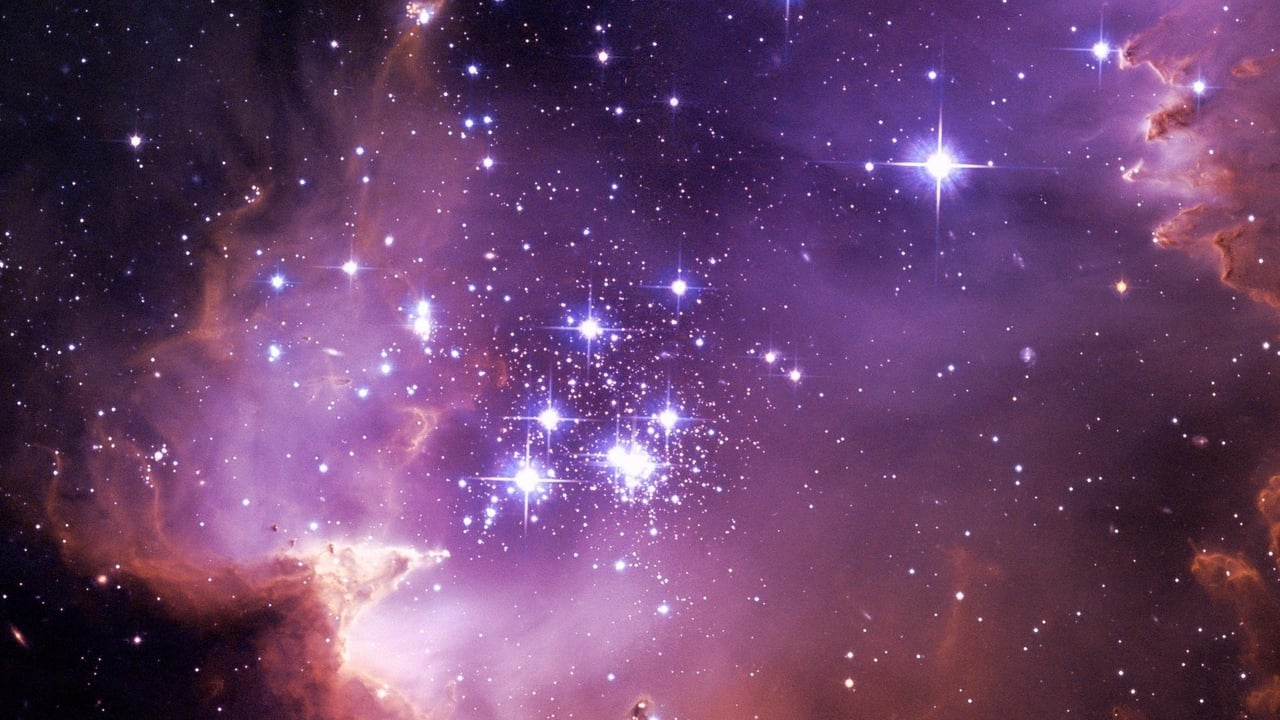
Space Time explores the outer reaches of space, the craziness of astrophysics, the possibilities of sci-fi, and anything else you can think of beyond Planet Earth with our astrophysicist host: Matthew O’Dowd.
Watch NowWith 30 Day Free Trial!
PBS Space Time
2015
Space Time explores the outer reaches of space, the craziness of astrophysics, the possibilities of sci-fi, and anything else you can think of beyond Planet Earth with our astrophysicist host: Matthew O’Dowd.
Watch Trailer
With 30 Day Free Trial!
PBS Space Time Season 2020 Full Episode Guide
We often think of quantum mechanics as only affecting only the smallest scales of reality, with classical reality taking over at some intermediate level. But in his 1944 book, What is Life?, the quantum physicist Erwin Schrödinger suggested that “incredibly small groups of atoms, much too small to display exact statistical laws, do play a dominating role in the very orderly and lawful events within a living organism.” Schrodinger was a visionary - and perhaps very specifically in this case. Because it turns out we might need all the weirdness of quantum mechanics to explain birds.
Good news everyone: it looks like the universe is going to end with a series of catastrophic explosions. The very, very long story short is that the universe ends in heat death, as it approaches maximum entropy, and its eternal exponential expansion drives it to effective utter emptiness and absolute cold. But new calculations have revealed we may be able to look forward to one last source of astrophysical cataclysms - a new type of supernova that can only happen at the end of the universe.
The laws of physics don’t specify an arrow of time - they don’t distinguish the past from the future. The equations we use to describe how things evolve forward in time also perfectly describe their evolution backwards in time. So the brain is a thing ruled by the laws of physics - why does the brain and the conscious experience that emerges from it, see the arrow of time so clearly? In other words why do we remember the past and not the future?
Ever wish you could travel backward in time and do things differently? Good news: the laws of physics seem to say traveling backward in time is the same as traveling forwards. So why do we seem to be stuck in this inexorable flow towards the future? It's time to begin our journey towards really understanding time.
Physicists have a long history of sticking our noses where they don’t belong - and one of our favorite places to step beyond our expertise is the question of consciousness and free will. Sometimes our musings are insightful, sometimes incoherent, and usually at least somewhat naive. Which a fair description of this show, so of course Space Time needs to weigh in physics and free will..
Our universe seems pretty complicated. We have a weird zoo of elementary particles, which interact through very different fundamental forces. But some extremely subtle clues in nature have led us to believe that the forces of nature were once unified, ruled by a single, grand symmetry. But how does one force separate into multiple? And how do the forces of nature arise from mathematical symmetries in the first place?
The Nobel prize in physics this year went to black holes. Generally speaking. Specifically, it was shared by the astronomers who revealed to us the Milky Way’s central black hole and by Roger Penrose, who proved that in general relativity, every black hole contains a place of infinite gravity - a singularity. But the true impact of Penrose’s singularity theorem would is much deeper - it leads us to the limits Einstein’s great theory and to the origin of the universe.
Einstein’s special theory of relativity combines space and time into one dynamic, unified entity - spacetime. But if time is connected to space, could the universe be anything but deterministic? And does that mean that the future is predestined?
Is all that exists just whatever exists right now? Is the past erased and the future a void yet to be filled? Well, the answer lies in between the past and the future - in the elusive, ever-moving eye-blink that we call the present.
If you rank the most habitable places in our solar system Venus lands pretty low, with surface temperatures hot enough to melt lead and sulphuric acid rain. And yet it may have just jumped to the front of the pack. In fact, we may have detected the signature of alien life - Venusian life -for the first time.
Your extensive posting history on r/birdswitharms and your old fanfiction-heavy livejournal are both one tiny math problem away from becoming public knowledge. That math problem is prime number factoring, and the new era of quantum computers may lay bare your indiscretions, as well as collapse the entire digital economy. Unless we get us some post-quantum cryptography post-haste. So, how close are we?
One of the most bizarre proposals for life not as we know it doesn’t even use atoms. It proposes that fundamental kinks and defects in the fabric of the universe - cosmic strings beaded with magnetic monopoles - may evolve into complex structures, and even life, within stars. This idea was just published in Letters High Energy Physics Letters by physicists Luis Anchordoqui and Eugene Chudnovsky, and today on Space Time Journal Club we’re going to see how legit this actually is.
The great physicist Hermann Weyl once said: "My work always tried to unite the true with the beautiful, but when I had to choose one or the other, I usually chose the beautiful." But is this actually good advice for doing physics?
Pin-pricks in the celestial sphere, through which shines the light of heaven? Or gods and heroes looking down from their constellations? Or lights kindled above middle earth by Varda Elbereth and brightened with the dew of the trees of Valinor? Science has long pondered the mysteries of the stars. This is how we finally figured them out.
If you wanna make an omelet you gotta break a few eggs. And by omelet I mean a theory of everything, and by eggs I mean a billion billion subatomic particles obliterated in the next generation of giant particle colliders.
Our galaxy is full of dysfunctional stellar relationships. With more than half of all stars existing in binary orbits, it’s inevitable that many stellar remnants will end up in parasitic spirals with their partners. Today we’re going to look at the worst of these - from the novae produced by white dwarfs, to X-ray binaries created by neutron stars and black holes - and much weirder things besides.
When we detected the very first gravitational wave, a new window was opened to the mysteries of the universe. We knew we’d see things previously thought impossible. And we just did - an object on the boundary between neutron stars and black holes, which promises to reveal the secrets of both.
The most precious substance in our universe is not gold, nor oil. It’s not even printer ink. It’s antimatter. But it’s worth every penny of it’s very high cost, because it may hold the answer to the question of why anything exists in our universe at all.
Black hole singularities break physics - fortunately, the universe seems to conspire to protect itself from their causality-destroying madness. At least, so says the cosmic censorship hypothesis. Only problem is many physicists think it might be wrong, and that naked singularities may exist after all.
Black holes are about the worst subjects for direct study in the universe. But at this stage, it’s all we can do to convince ourselves of their existence. Actually studying the physics of real black holes is much, much harder. I mean, we could try to make one - but that’s way beyond our current tech level, and also potentially humanity-destroying. Well it turns out we don’t need to make real black holes to at least get started with the lab work. We can instead study analog black holes - and by analog, I don’t mean old fashioned clockwork black holes - I mean analogies. Physical systems that aren’t black holes but that behave in similar ways - and may reveal the real behaviours of real black holes.
Conformal Cyclic Cosmology is a story of the origin and the end of our universe from great mathematical physicist Sir Roger Penrose. It’s goes like this: the infinitely far future, when the universe has expanded exponentially to to an unthinkably large size, and every black hole and particle has decayed into faint radiation .... that infinite stretch of space and time is identically the SAME THING as the infinitesimal and instantaneous big bang of a new universe, and our universe is just one in an endless chain.
With the global pandemic of Covid 19 still encompassing the word, we are generally not big fans of viruses right now. But we sure are thinking about them a lot. That’s right, even astrophysicists are pondering these bizarre little critters. In fact, astrovirology, although very new, is actually an emerging subfield of astrobiology. And that’s because it turns out viruses don’t just influence organisms - they’re incredibly important on a planetary scale. Perhaps an interplanetary scale.
It’s been 120 years since Henry Cavendish measured the gravitational constant with a pair of lead balls suspended by a wire. The fundamental nature of gravity still eludes our best minds - but those secrets may be revealed by turning back to the Cavendish experiment. That steampunk contraption may even reveal the existence of extra dimensions of space.
This is a map of the multiverse. Or in physics-ese, it’s the maximally extended Penrose diagram of a Kerr spacetime. And in english: when you solve Einstein’s equations of general relativity for a rotating black hole, the universe does not come to an abrupt halt at the bottom of the gravitational pit. Instead, a path can be traced out again but you do not end up in the universe that you started in. Like I said, it’s a map of the multiverse.
As the 19th century came to a close, physicists were feeling pretty satisfied with the state of their science. The great edifice of physical theory seemed complete. A few minor experiments remained to verify everything. Little did those physicists know that one of those experiments would bring the entire structure crashing down paving the way for the physics revolution of the 20th century.
The universe is precisely 13.8 billion year old - or so our best scientific methods tell us. But how do you learn the age of the universe when there’s no trace left of its beginnings?
From Stargate to Interstellar, wormholes are our favorite method for traveling across fictional universes. But they are also a very serious field of study for some of our greatest minds over the last century. So what’s the holdup? When do we get to wormhole ourselves out of here?
The Milky Way galaxy is relatively calm by the destructive standards of the rest of the Universe, and compared to its own very violent past. But just recently we discovered that its violent past was much more recent than we thought - and could even happen again.
In astronomy we talk about billions of years like it’s no big deal. But how can we be sure about timescales so far beyond the capacity for human intuition? Our discovery of what we now call deep time is very recent - as recent as our discovery of the true spatial vastness of our universe. And it came as scientists tried to measure the age of the Earth. What they found was as shocking and humbling as anything seen through the telescope.
Normal maps are useless inside black holes. At the event horizon - the ultimate point of no return as you approach a black hole - time and space themselves change their character. We need new coordinate systems to trace paths into the black hole interior. But the maps we draw using those coordinates reveal something unexpected - they don’t simply end inside the black hole, but continue beyond. In these maps, black holes become wormholes, and new universes lie on the other side.
If there’s one thing cooler than a black hole it’s a rotating black hole. Why? Because we can use them as futuristic power generators, galactic-scale bombs, and portals to other universes.
In quantum world things are routinely in multiple states at once - what we call a “superposition” of states. But in the classical world of large scales, things are either this or that. The famous thought experiment is Schrodinger’s cat - in which a cat is in an opaque box with a vial of deadly poison that’s released on the radioactive decay of an atom. Quantum mechanics tells us that the atom’s wavefunction can be in a superposition of states - simultaneously decayed or not decayed. So is the cat’s wavefunction also in a superposition of both dead and alive.
If we can’t ever peer into these other realities that are used to explain quantum mechanics, how do we know they exist? In order to understand what happens to those different branches, and to understand why we find ourselves in one of them, we need to embrace one of the interpretations of quantum mechanics.
Why is it that we can see these multiple histories play out on the quantum scale, and why do lose sight of them on our macroscopic scale? Many physicists believe that the answer lies in a process known as quantum decoherence.
It’s not surprising that the profound weirdness of the quantum world has inspired some outlandish explanations - nor that these have strayed into the realm of what we might call mysticism. One particularly pervasive notion is the idea that consciousness can directly influence quantum systems - and so influence reality. Today we’re going to see where this idea comes from, and whether quantum theory really supports it.
What does the strong nuclear force, the fundamental symmetries of nature, and a laundry detergent have in common? They’re all important parts of the tale of the axion - a tale whose end may take us beyond the standard model and solve one of the most vexing mysteries in astrophysics.
If the universe goes on forever, does that mean there are infinite versions of you out there?
In particle physics we try to understand reality by looking for smaller and smaller building blocks. But what if that has been the wrong philosophy all along?
The three body problem is famous for being impossible to solve. But actually it's been solved many times, and in ingenious ways. Some of those solutions are incredibly useful, and some are incredibly bizarre.
Black holes are awesome - but how about black holes being captured by the screaming vortex of a quasar, where they merge and grow like some monstrous version of a solar system. This insane hypothesis is getting closer to reality, according to the papers in today’s space time journal club.
Why is there something rather than nothing? Well the answer may be found in the weakest particle in the universe: the neutrino. For over half a century Fermilab has been the premier particle accelerator facility of the United States and we got to visit with Don Lincoln to explore it’s science and its engineering. These days many of the super-powered geniuses of Fermilab are tackling the mysteries of the neutrino. Why? Because this elusive particle may hold powerful secrets: from the unification of the forces of nature to the biggest question of all: why is there something rather than nothing?
Free Trial Channels
Seasons


